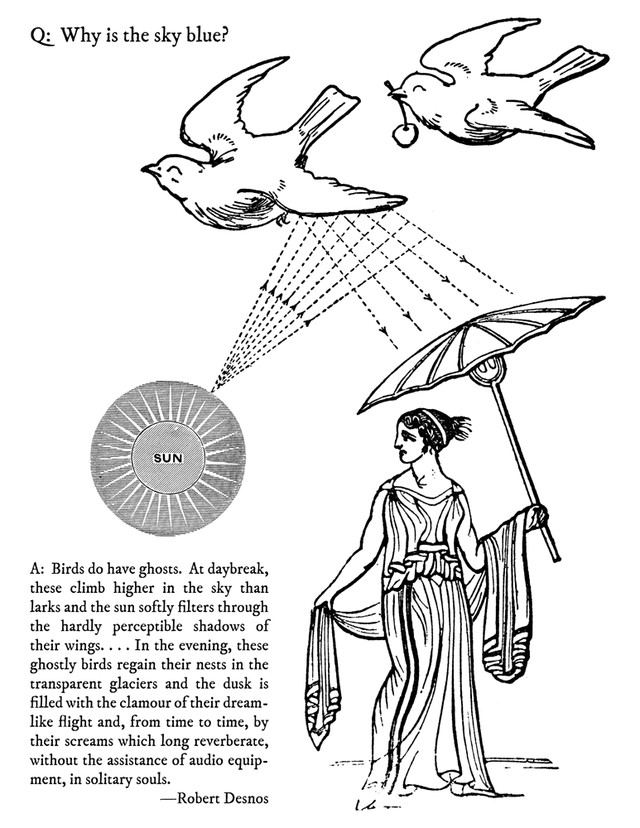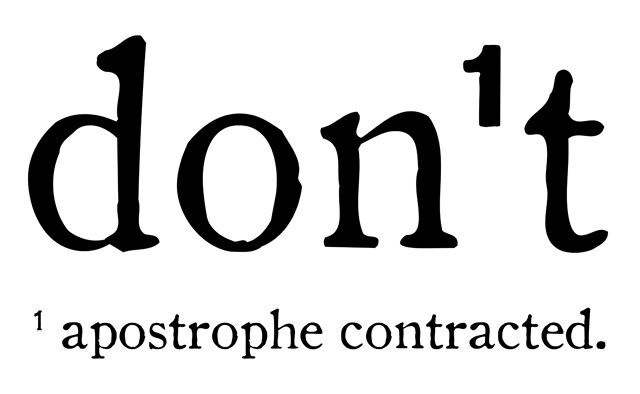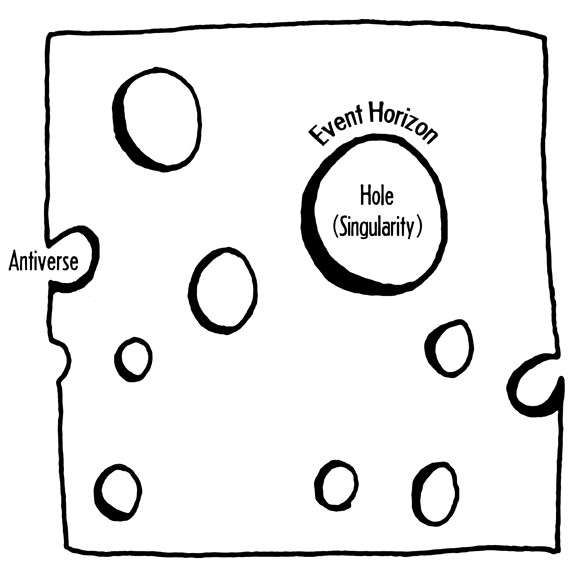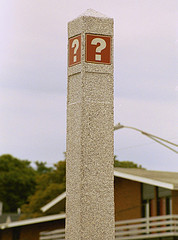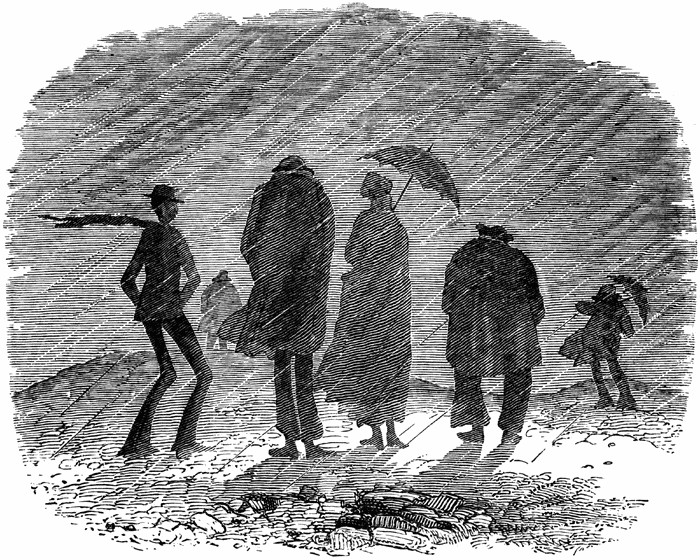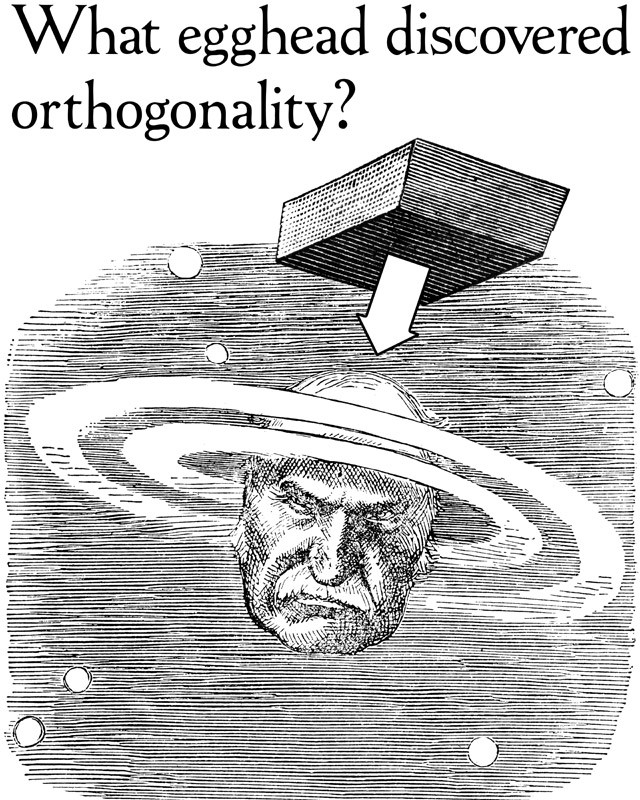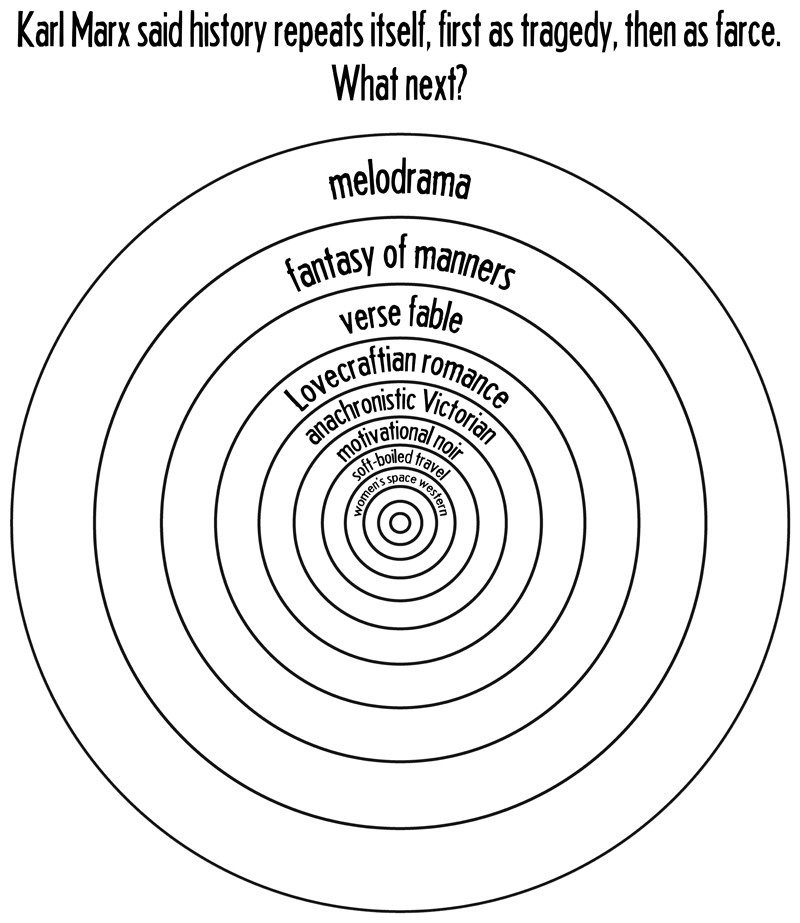Rhetorical Questions, Answered!
|
|
|
 |
 |
 |
Q: Where do I begin? A: The answer is right there in your kitchen. (Kelly Hancock, Saving Savvy, 2011) |




 |
|
|
 |
 |
 |
From our former outpost at Twitter:
Why do we praise people for making a "difference" when they're actually making a "sum"?
I think it's a product of the times.
June adds:
It just doesn't add up.
|

 |
|
|
 |
 |
 |
In the British comedy series " Absolutely Fabulous," a life coach gives this ridiculous "daily aim": "Have a great idea and write a pop song." We couldn't help but think back on that line when we saw this advice:
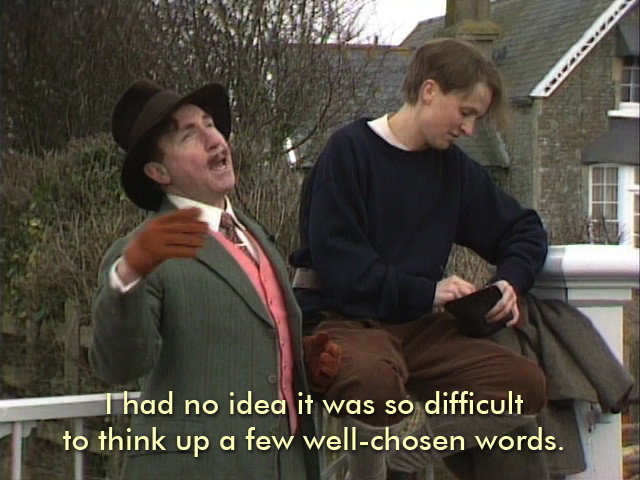
This frame is from the hilarious and endearing Mapp & Lucia series, based on E. F. Benson's novels. We agree with Nigel Hawthorne here — well-chosen words don't write themselves!
|

 |
|
|
 |
 |
 |
Q: Why do I have to ask the questions? A: Do you think that is the question to ask? — Geof Huth, personal correspondence |

 |
|
|
 |
 |
 |
Jeff asks today's question: Q: What is it about rhetorical questions? A: Yeah, I know, right?
|


 |
|
|
 |
 |
 |
Q: "What happens to the hole when the cheese is gone?" —Bertolt Brecht
A: The hole hovers in Swedenborgian space.
---
J adds:
Having originated, of course, in Switzerlandborgian space.
Pitchinwoot writes:
The mice collect them for their Mouse Holes.
|

 |
|
|
 |
 |
 |
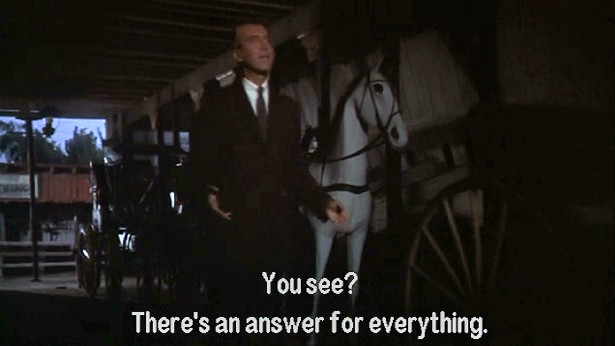
A still from Vertigo (a film irreparably marred by Kim Novak's clownishly painted on eyebrows). --- June writes: That's what Laura Palmer's mother said when SHE saw the white horse!
|




 |
|
|
 |
 |
 |
Carly Simon's song "You're So Vain" doesn't identify its subject, yet actor Warren Beatty has asserted that it's about him. Beatty's assertion begs a question: if anyone takes "You're So Vain" personally, is he or she technically correct? The answer is Yes! According to Hugh Everett's " many worlds" interpretation of quantum mechanics, every possible quantum vanity is realized. In the many-branched tree of parallel universes, each and every vain human being is the true subject of Carly Simon's song.
---
J quips:
This is very comforting! Imagine being vain enough to think YSV was about you, but finding out it wasn't. The very world might cease to revolve around one.
Technical question: Does Everett's theory still hold for values of "a" (a = age of vain individual) that are < Y (Y = years elapsed since song was written)? In other words, was Simon farsighted enough to build infinite references to unborn vain people into her song?
Similarly, I note the problematics around individuals who were alive when the song was written but not yet vain, their vanity only to develop later on. In their case, I hypothesize a "critical vanity threshold," or CVT--the discrete moment at which someone's vanity has matured to the point where Simon's song begins to refer to him or her.
|


 |
|
|
 |
 |
 |
Q: " Everything can't be Kafkaesque, can it? I ask myself this over and over, even though I know it's a rhetorical question." — William KecklerA: Yes, everything is indeed Kafkaesque, except at the antipodes, where everything is reversed. |



 |
|
|
 |
 |
 |
Courtesy of William Keckler: QUESTION: If Roman augurs read entrails, does that mean libraries once had guts? ANSWER: YES, parchment was indeed made from intestine. |

Page 8 of 10

> Older Entries...

Original Content Copyright © 2026 by Craig Conley. All rights reserved.
|



